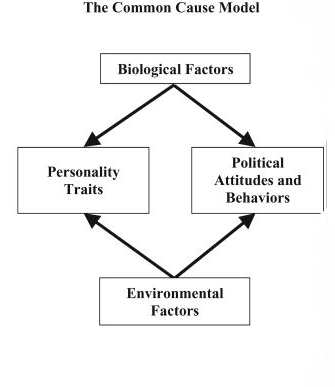Professors are mere human beings. Naturally, then, each has his or her guilty pleasure. In my case, it was candy corn and circus peanuts.
Other academics’ guilty pleasures seem to be less benign. For example, some scholars cannot resist the allure of research findings that can be weaponized into ad hominem political attacks — and then cash in on a little media buzz as a result. Every couple of months, it seems, we see headlines trumpeting the latest juicy, data-driven potshot aimed squarely at conservative Americans. “New study shows conservatives can’t count. And they hate puppies!”
This kind of motivated reasoning is hardly universal. I can report firsthand that most academics, whatever their personal predilections, are above this kind of bad behavior. But they still happen pretty regularly.
For a prime example, consider a 2013 study published in the American Journal of Political Science. It was entitled “Correlation Not Causation: The Relationship Between Personality Traits and Political Ideologies.” The paper’s main aim was to debunk the idea that a person’s personality type leads directly to their political ideology. But buried deep in the study’s empirical findings was a pretty provocative data point: Compared to liberals, the authors wrote, conservatives scored significantly higher on measures of psychoticism.
Sounds pretty bad for conservative citizens, right? You don’t need a PhD to understand this is basically saying “conservatives are dangerous.” To add insult to injury, the study also seemed to lavish praise on the personalities of conservatives’ political opponents. Left-leaning individuals reportedly scored higher on scales of “social desirability,” meaning they possessed a greater predisposition to try to please others.
But this time, it was actually conservatives who got the last laugh. It turns out the scholars made a pretty big mistake. At some point, someone misread the way the political ideology data were coded in the research. They mistook the data on liberals for the data on conservatives, and vice versa. What does this mean? These controversial results were actually the exact opposite of what the authors reported.
Conservatives are justifiably enraged. But so are some liberals. I originally heard about this egregious case of academic maleficence in a tweet from an accomplished left-leaning economist.
Of course, this story raises pressing questions about the impact that ideological prejudice may be having within academia. As a former professor, this is a topic I care deeply about, and I’ve written about it at some length in the New York Times.
But this little episode has me thinking about another bigger-picture issue. The cognitive problem of confirmation bias — people letting their mental guard down when a claim gels with their preconceived notions — does not impact only social science research. It plays out in our everyday lives, shaping everything from our political debates to our professional lives to our interpersonal relationships.
So I’m mulling a longer piece that would look at the broad impact of confirmation bias across American life. Keep your eyes out for my take as I dig into this more in upcoming weeks. In the meantime, feel free to drop this fun story at your next cocktail party. If you’re a conservative, maybe it will reassure your family and friends that you are not, in fact, crazy.





